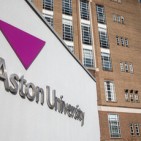‘Trojan Horse’ was an attempt to implement a forceful Islamic ethos on a secular school in Birmingham, but some people claim it never happened. Birmingham MP Khalid Mahmood was hit by suggestions that the Trojan Horse affair in Birmingham schools was a creation by Islamophobia. He claimed that the widely reported problems in Birmingham schools were real and that young girls were being discriminated for their faith.
Mahmood said that he was present at these schools, and confronted the people in question. The Trojan Horse affair mentions attempts to acquire a religious ethos on secular state schools in Birmingham. Although, a report by the All-Party Parliamentary Group (APPG) on British Muslims, includes politicians from a range of parties, emphasises claims that the controversy was an attack on Muslims. The report’s authors said that they wanted to give voice to the many victims of Islamophobia, who shared their experiences with them.
The report also included comments from an anonymous person who stated: “Let’s not forget that we are in a city where the so-called Trojan Horse affair happened. People are frustrated because they have been insulted for being Muslim. Those schools involved in the so-called Trojan horse affair were some of the top performing schools, and now the schools have below average GCSE achievement levels. That’s Islamophobia.”
Mr Mahmood told the House of Commons that Chapter 4 of the report mentions Trojan horse, with which he is familiar with. Though, the way it was described in the statement, it has no basis in the events. He claimed that he is aware of young girls were made to sit at the back of classrooms, because they were female and how they were all told to cover their heads and supposed to move on. He emphasised the two investigations into Trojan Horse, which found there had been problems in the schools.
He also stated that Peter Clarke and Ian Kershaw made the two reports. An inquiry by Ian Kershaw, who was appointed by Birmingham City Council as an independent advisor, uncovered an effort to promote and encourage Islamic principles in the schools, for example, by seeking to introduce Islamic mutual worship, or raising objections to elements of the school curriculum which are viewed as anti-Islamic.
An inquiry in 2014 by Peter Clarke, who was appointed by the Government as an Education Commissioner for Birmingham, found a sustained and synchronised agenda to enforce upon children in several Birmingham schools.
Tauseef Asif
















